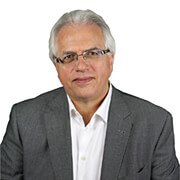March 8, 2022
The value of trust
 A number of years ago, I read a book called The Speed of Trust by Stephen Covey Jr.
A number of years ago, I read a book called The Speed of Trust by Stephen Covey Jr.The book relayed many stories and shared real-life examples of individuals and companies who saved huge amounts of time, money and resources while generating significant financial and social benefit for all involved. High trust relationships naturally accelerate productivity.
The theme of the book is that low trust environments come with a hidden tax. Just think of the cost of all the documentation required for just about any transaction. The world is full of multi-page contracts, detailed specifications, thick policy documents, extensive review processes and comprehensive employee manuals. Think of all the “red-tape” generated when trying to get anything done.
A lawyer once told me the reason why he was so detail oriented to the point of obsession was because “he lived in an f-upped world.” His default was “no trust” based on his experience (and perhaps his career choice). He almost ruined a deal we were involved with because of this obsession. The deal also took much longer than it should have.
I recall one story about a company that had a very extensive hiring process focused on finding candidates who had integrity and character as well as experience and competency. The employee manual had one paragraph: We hired you based on your trustworthiness. Reflect that in all your interactions (this is a paraphrase).
Recently, a fellow team member told me the story of her sister’s job search. She had applied to a number of organizations that highlighted “unlimited” sick days and vacation, as well as abundant benefit plans focused on mental and physical wellness. It turns out this is a new human resource philosophy called Unlimited PTO (Paid Time Off). You can find many online articles about this revolutionary approach.
The process is not as free as it sounds, but it is based on a high trust agreement that the priority is a mutually agreed job performance. It is an interesting approach. I wonder how it works in reality. In a way, it reminds me of another book I read called The Surprising Truth about What Motivates Us by Daniel Pink. The book talks about the importance of autonomy, mastery and purpose as main motivators. The PTO model follows these motivations.
Coincidently, I also came across a social media post that was shared by LO member Ben Zlotnick:
From Jack Parsons
I don’t care whether you come into the office at 10 a.m.
I don’t care if you choose to work from home or not.
I don’t care if you work from the garage while they fix your car.
I hired you for a job and I trust you to get it done.
Just let me know what you need from me to be successful in your role and I will show up for you.
Life happens!
You don’t need to justify to me why you need a day off.
You don’t need to explain how sick your child is to leave early.
You don’t need to apologize for having a personal life.
Yes, I care about results, but I also care about you.
We are all human and we are all adults.
I lead people.
I don’t run an adult day care centre.
Advice for anyone hiring:
1. Select the right people.
2. Agree on deliverables (be crystal clear).
3. Provide proper tools and support.
4. Get out of their way.
Food for thought. The speed of trust.